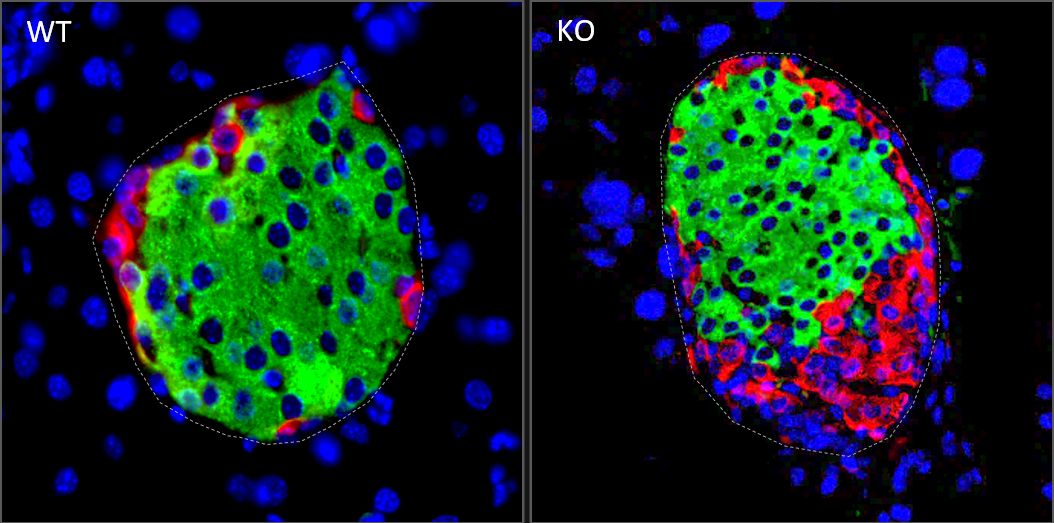Characterization of cellular plasticity of the endocrine pancreas in SGLT1 knockout mice
The pancreas plays a central role in the regulation of blood glucose levels through the production of insulin in the β-cells of the islets of Langerhans. Insulin deficiency or resistance, as occurs in diabetes mellitus, for example, leads to inadequate blood glucose control and the characteristic hyperglycemia. SGLT1 inhibitors can improve blood glucose control by inhibiting glucose uptake in the small intestine and thereby reducing the postprandial rise in blood glucose.
As part of our research project at the Chair of Tissue Engineering and Regenerative Medicine (TERM), we are focusing on the investigation of cellular plasticity of the endocrine pancreas after targeted knockout of the sodium-glucose cotransporter SGLT1. The aim of this project is to better understand the long-term effects of diabetes drugs on the pancreas. Through genetic modification, we aim to characterize in detail the adaptive and long-term changes in the endocrine cell population and identify the molecular mechanisms underlying these processes. Under the leadership of Dr Daniela Zdzieblo, this project will provide crucial insights into the effects of diabetes drugs on pancreatic function and contribute to the development of new therapeutic approaches aimed at the long-term maintenance and regeneration of pancreatic health.
Funding: German Research Foundation DFG
Project duration: 2021-2024


